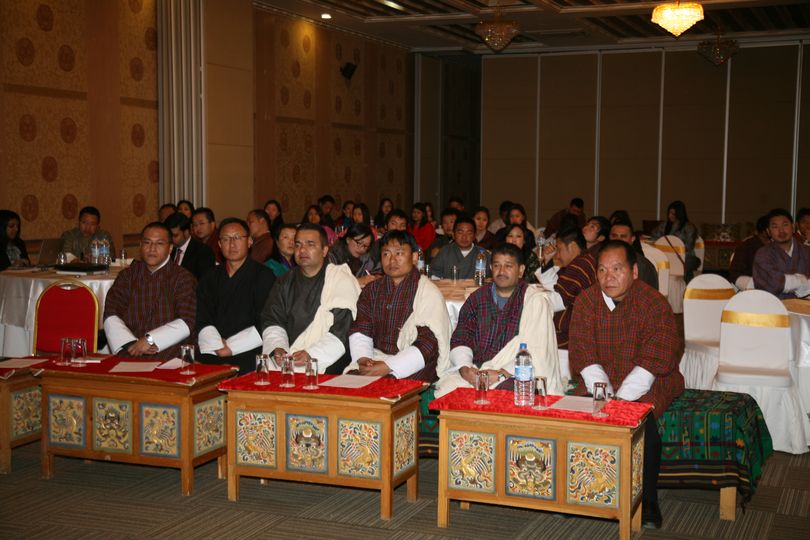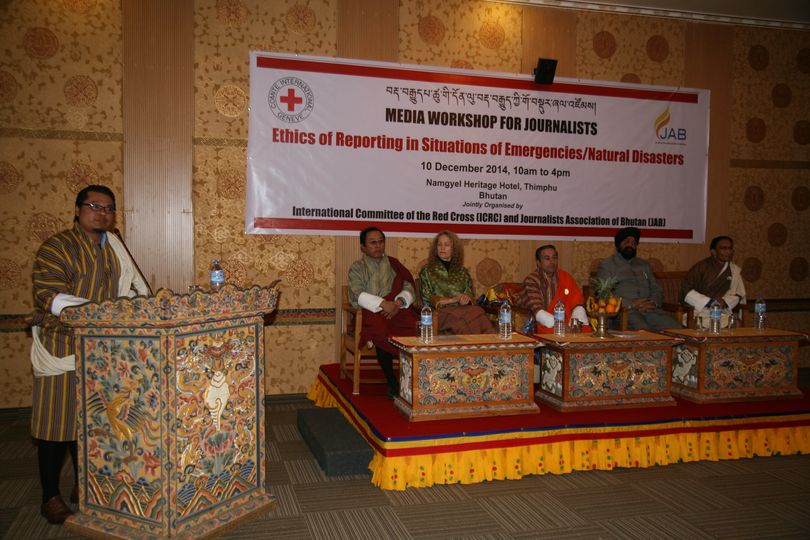In collaboration with the Journalists’ Association of Bhutan, the ICRC organized a daylong workshop in Thimpu on 10 December, 2014. The first of its kind to be organized by the ICRC, the workshop, entitled ‘Ethics of reporting in situations of emergencies / natural disasters’, talked in great detail about how journalists can better report on situations of crisis.
The workshop was inaugurated by Bhutan’s information and communication minister Mr Lyonpo D N Dungyel. “We don’t know what tomorrow will bring. So, it is our preparedness and readiness that counts,” he said. Mr Dungyel, who was also the chief guest at the event, added: “We in Bhutan don’t really face emergencies often, but I hope that this training will help my fellow journalists equip themselves with the skills to report well during such situations.”
The workshop was attended by more than 50 participants, including working journalists, students from media schools, information officers and government officials. Welcoming the participants to the information exchange event, Ms Mary Werntz, head of the regional delegation of the ICRC for India, Bhutan and the Maldives, said: “It is in emergencies that you, as a professional, are pushed in to extraordinary and challenging situations, and that is when these ethics are really tested. It is only when journalists stick to these professional ethics and basic humanitarian values that their stories will stand the test of time. Also, it is by means of principled journalism that one is likely to keep oneself safe when reporting from an emergency.”

The workshop was attended by working journalists, media students, information officers and government officials. ©ICRC
The workshop comprised two technical sessions. In the first session, young journalists were given an insight into the ICRC’s work across the globe and explained how respecting and understanding international humanitarian law is crucial while reporting from conflict zones. The second session talked in detail about the dos and don’ts of reporting in emergencies. Summarizing the technical session on ethics, Mr Surinder Singh Oberoi, communication and political adviser, ICRC, said, “Detailed investigation and multiple verifications of facts and figures are critical while reporting on crises as the chance of generating rumours and biased opinions is very high during such situations.”
The technical sessions were followed by a panel discussion wherein Tara Limba, editor, Bhutan Broadcasting Service, and Tashi Dorji, a freelance journalist and also member of the Bhutan Forum of Environment Journalists, shared their experiences of reporting from crises, especially natural disasters. “There is an emergence of sub-tropical diseases as a result of climate change and the risk of floods is also increasing. So it’s quite possible that Bhutan may face emergencies related to environment in future. Hence, there is a growing need for journalists to have skills and preparedness to deal with such emergencies.”
The panel discussion was followed by a question-and-answer session wherein participants exchanged experiences and agreed on the need of preparedness and readiness for better emergency response.
Media Coverage: Photo gallery on Kuensel Online


